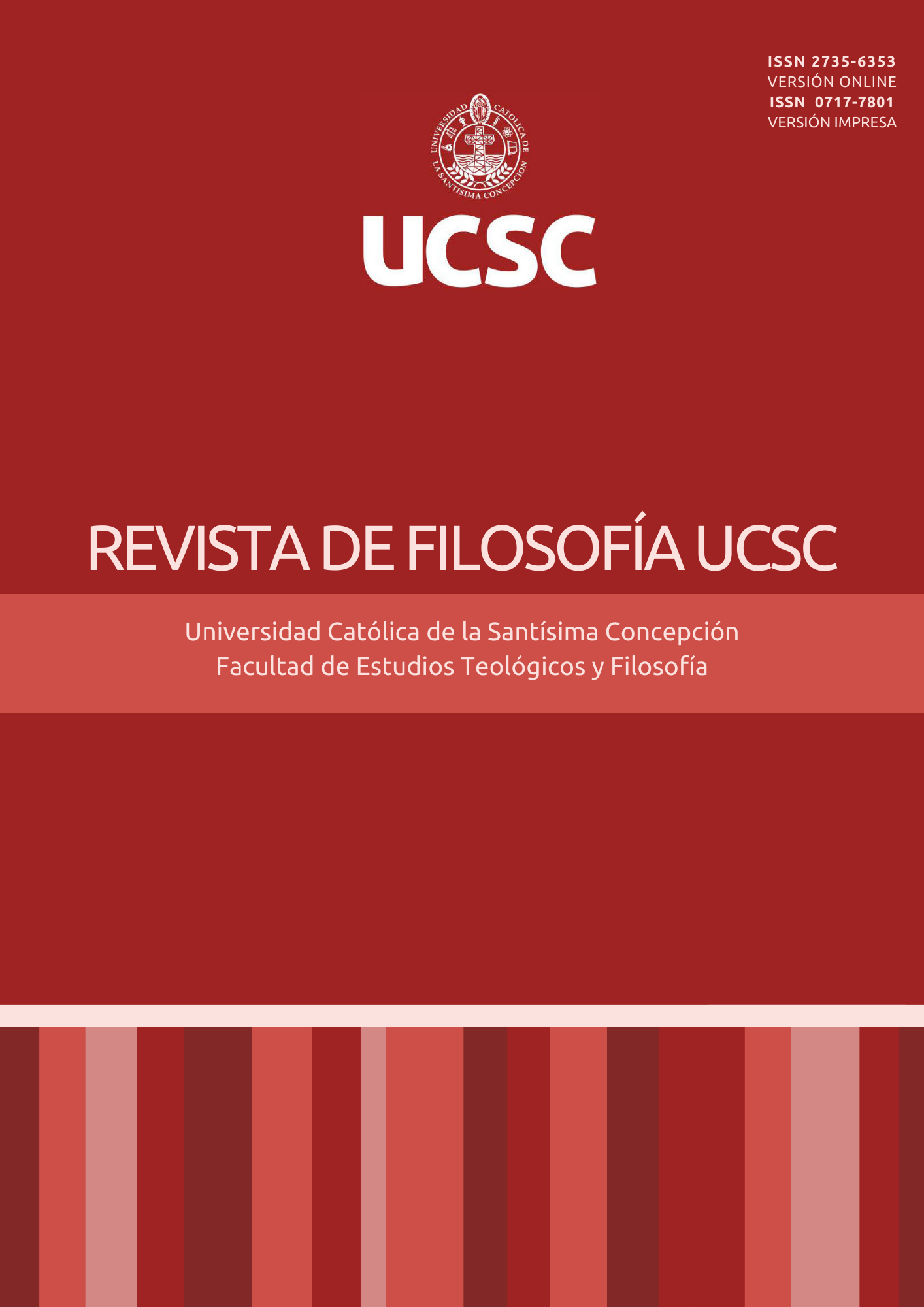El papel epistémico del lenguaje en la creencia acerca de la Trinidad y la Encarnación
Contenido principal del artículo
Resumen
El presente artículo analiza algunos aspectos relevantes de la Encarnación de Jesús, el Hijo de Dios. Considera la tensión entre interpretaciones a favor de una lectura metafórica y el problema que implica que esto descarte el carácter histórico, el evento de Dios hecho carne. Este es un problema ontológico. Al mismo tiempo, reflexiona sobre el papel de la noción de misterio y el alcance que tiene para creer en la Encarnación, es decir, admitir un límite epistémico inherente como seres finitos pero al mismo tiempo hacer viable que el creyente comprenda gradualmente lo que cree, aunque no sea completamente. Esto constituye un borde epistémico. De la misma manera, se evalúa el papel del lenguaje como medio de acceso y transmisión del conocimiento sobre lo divino y sagrado, enfatizando el papel de los nombres utilizados para referirse a Dios Padre, Dios Hijo y Espíritu Santo, considerando sus implicaciones lógicas.
Detalles del artículo
Sección

Esta obra está bajo una licencia internacional Creative Commons Atribución-NoComercial 4.0.
La Revista de Filosofía UCSC es de acceso abierto y no cobra por publicar en ella. Además, regula su política de Derechos de Autor y de acceso a sus archivos de acuerdo con la Licencia Pública Attribution-NonCommercial 4.0 International (CC BY-NC 4.0), por tanto, se permite compartir (reproducir y distribuir el material en cualquier medio o formato) y adaptar (modificar, transformar y crear a partir del material) siempre y cuando se de crédito adecuadamente, se incluya la cita con los datos correspondientes. Además, no está permitido utilizar el material con fines lucrativos.
Cómo citar
Referencias
Baber, H. E. (2015). The Trinity. Faith and Philosophy, 32 (2), 161-171.
Baber, H.E. (2023). The Trinity. The Internet Encyclopedia of Philoso-phy. https://iep.utm.edu/trinity/#SH3B
Besson, C. (2018). Norms, Reasons, and Reasoning. The Oxford Handbook of Reasons and Normativi-ty. Oxford University Press. https://doi.org/10.1093/oxfordhb/9780199657889.013.23
Boesel, C., & Keller, C. (2009). Apophatic bodies: Negative theology, incarnation, and relationality. Fordham University.
Brichto, Herbert Chanan (1998). The names of God: poetic readings in biblical beginnings. Oxford University.
Britannica, T. Editors of Encyclopaedia (2023, January 6). Incarnation. Encyclopedia Britannica. https://www.britannica.com/topic/Incarnation-Jesus-Christ
Bultmann, R. (1960). Jesus Christ and Mythology. SCM-Press.
Cross, Richard. (2009). "The Incarnation" pp. 452-475, in Flint and Rea (eds.) The Oxford Hand-book of Philosophical Theology. New York: Oxford UP.
Frye, R. M. (1964). Christian Theology and the Challenge of its Parodies. Theology Today, 20(4), 496- 502. https://doi.org/10.1177/004057366402000406
Gray, D. P. (1974). The Incarnation: God's Giving and Man's Receiving. Horizons, 1(1), 1-13.
Hick, J. (1989). The Logic of God Incarnate. Religious Studies, 25(4), 409-423.
Kelly, J. N. D. (1978). Early Christian Doctrines. A. & C. Black.
Kripke, S. (1980). Naming and Necessity. Harvard University Press.
Lee, M. E. (2020). Historical Crucifixion: A Liberationist Response to Deep Incarnation. Theologi-cal Studies, 81(4), 892-912.
Leftow, B. (1999). Anti Social Trinitarianism, in The Trinity : An Interdisciplinary Symposium on the Trinity, S. T. Davis, D. Kendall and G. O'Collins (eds.). Oxford University Press, 203- 249.
Leftow, B. (2004), "A Latin Trinity," Faith and Philosophy, 21(3), 304- 333.
Leftow, B. (2007), “Modes without Modalism”, in Persons: Human and Divine, P. van Inwagen and D. Zimmerman (eds.). Oxford University Press, 357– 375.
Leftow, B. (2012b). On Hasker on Leftow on Hasker on Leftow. Faith and Philosophy, 29 (3), 334 - 339.
McHugh, J. (1911). Mystery. In The Catholic Encyclopedia. Robert Appleton Compa-ny. http://www.newadvent.org/cathen/10662a.htm
Miranda-Rojas, Rafael. (2013). Hegel, Contradiction and dialetheia. Journal of Philosophy, Vol. LXIX. 169 – 181
Morris, T. V. (1986). The Logic of God Incarnate. Cornell Univ. Press.
Publishing, R. (2008). Names of God and Other Bible Studies. Tyndale House Publishers.
Romero, G. E. (2018). Scientific Philosophy. Springer.
Smith, James K.A. (2022). Speech and Theology: Language and the Logic of Incarnation. Radical Orthodoxy Series. Routledge.
Svensson, Manfred (2016) Public reason, reasonability and religion a: Critical look at a liberal tradi-tion. ldeas y Valores 65(161), 247 https://doi.org/10.15446/ideasyvalores.v65n161.42079
Tuggy, D. (2003a). The Unfinished Business of Trinitarian Theorizing. Religious Studies, 39: 165-83.
Tuggy, D. (2021). Trinity. The Stanford Encyclopedia of Philosophy, Edward N. Zalta (ed.), https://plato.stanford.edu/archives/win2021/entries/trinity/
Visala, A. (2018) Pro-Science Rhetoric or a Research Program? – Naturalism(s) in the Cognitive-Evolutionary Study of Religion. New Developments in the Cognitive Science of Religion, 51-69. In van Eyghen, H., Peels, R., & van den Brink, G. (eds). Springer International Publishing
Wood,W. (2022). Philosophy and Christian Theology. The Stanford Encyclopedia of Philosophy (Spring 2022 Edition), Edward N. Zalta (ed.) https://plato.stanford.edu/archives/spr2022/entries/christiantheology-philosophy
Zachhuber, J. (2020) The Rise of Christian Theology and the End of Ancient Metaphysics: Patristic Philosophy from the Cappadocian Fathers to John of Damascus. Oxford.




